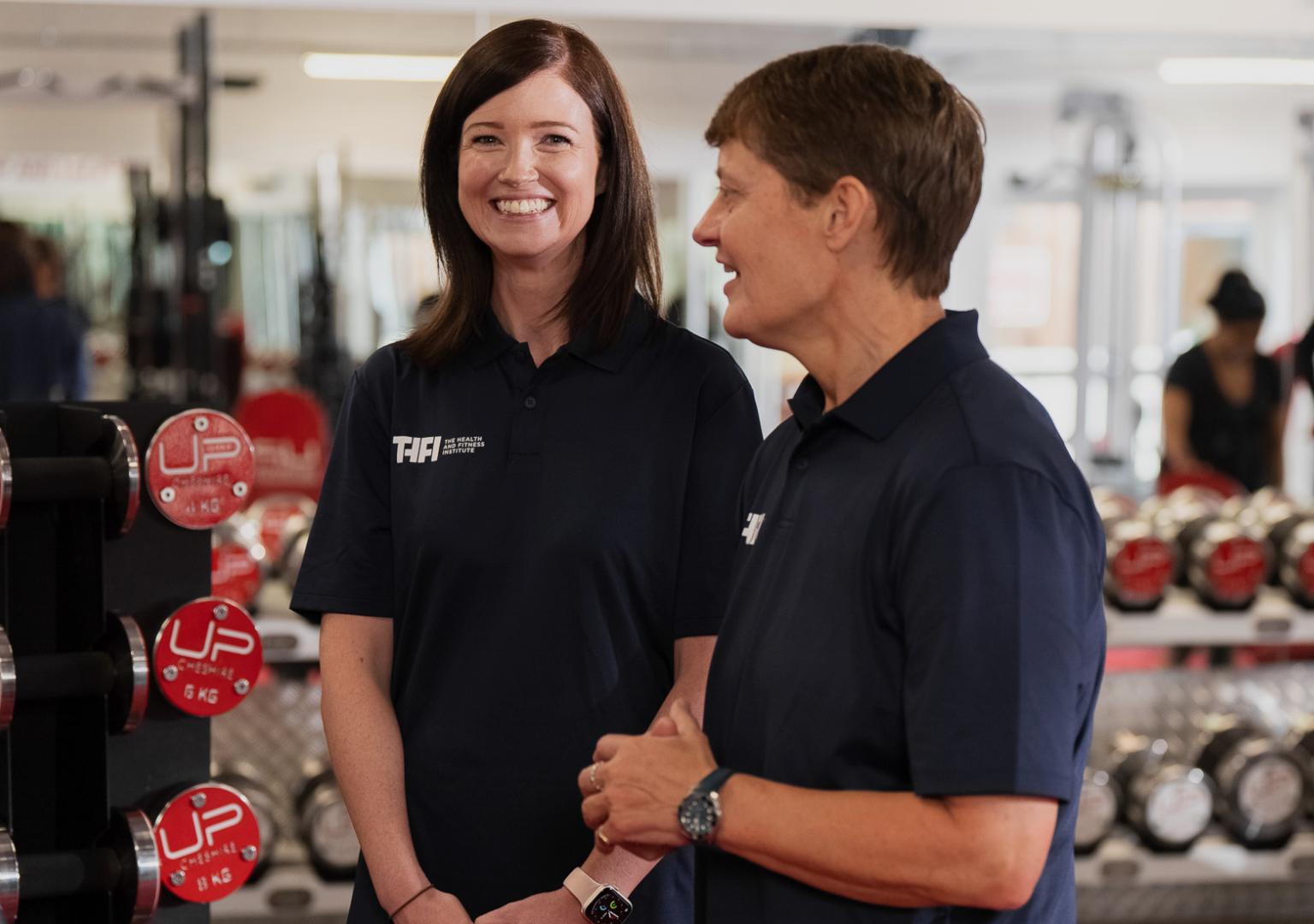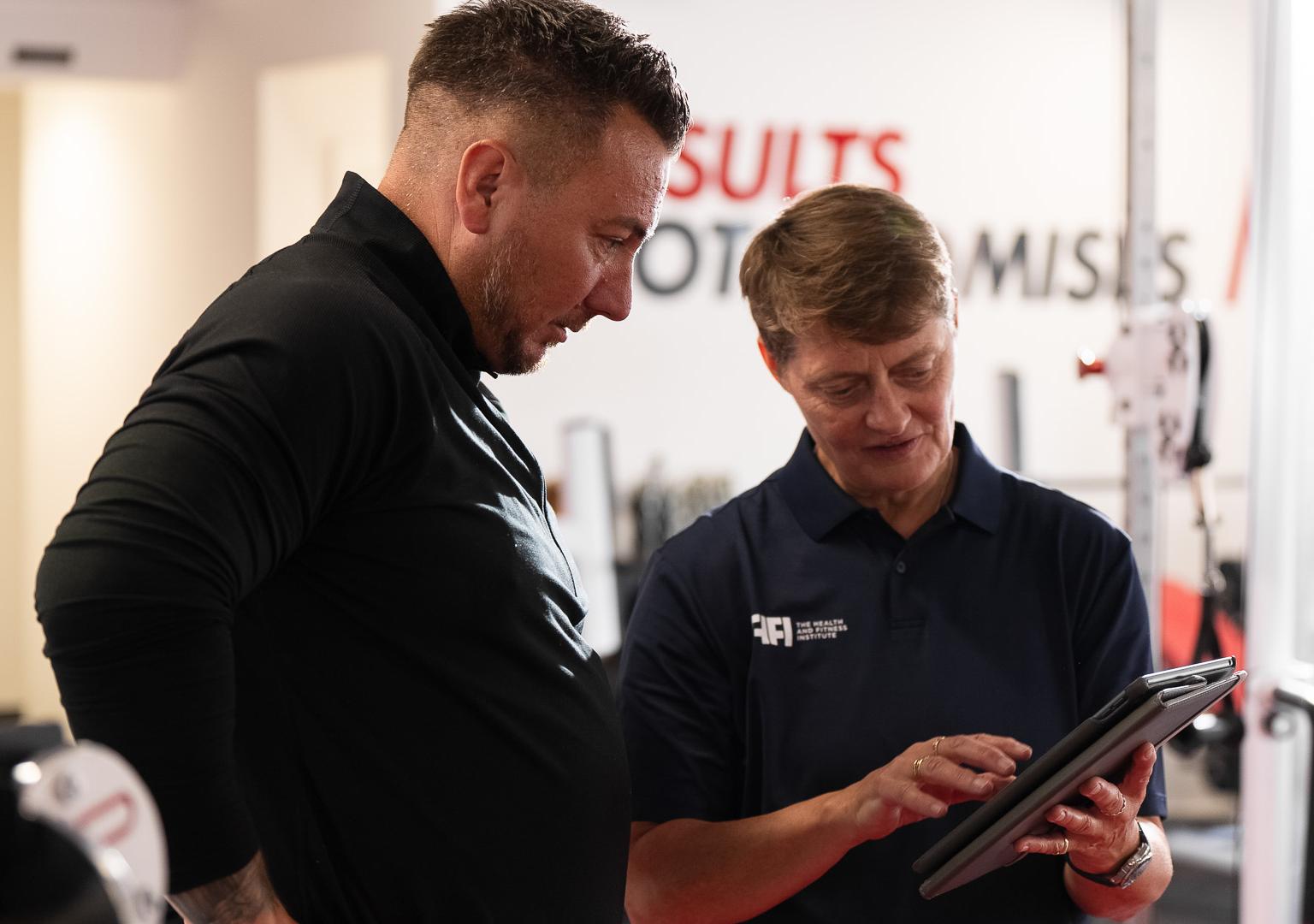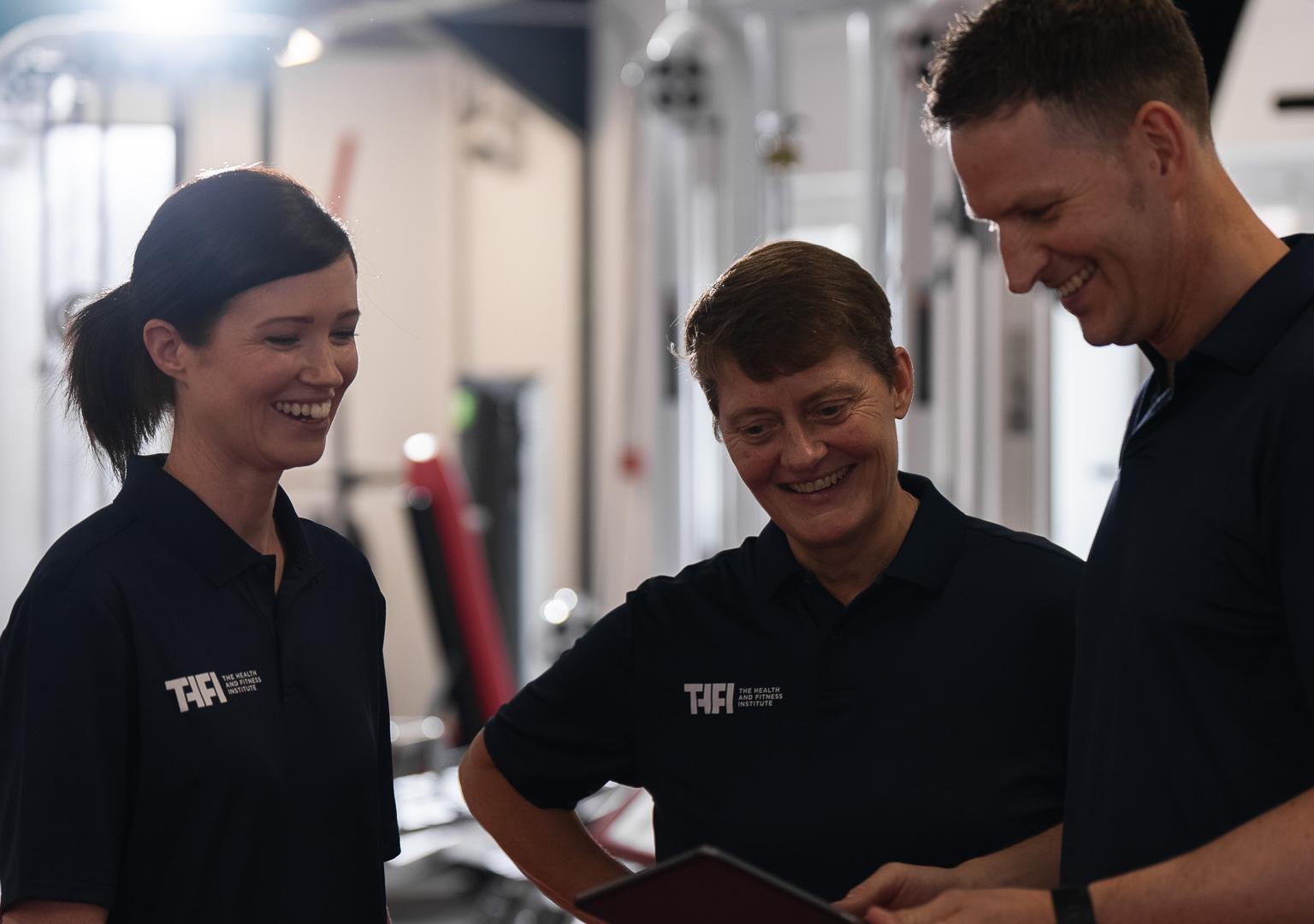How Much Protein Do You Really Need?

If you’re a personal trainer who wants to deliver your clients the best results, you’ll know that workouts are just half the battle.
You need to understand the science of nutrition to help your clients train harder, recover faster, and grow quicker.
This starts with understanding the role of protein – a key macronutrient in your clients’ diet that will help you enhance the results they can expect working with you.
But how does protein really fuel muscle growth?
How much protein should you recommend for your clients? And does this change depending on the goals they have across sport, performance, strength or endurance?
What does science say about animal proteins vs plant proteins, or the BCAAs you need?
And does protein timing really matter?
All questions you need to know the answers to so you can be the go-to expert clients come to.
We answer them in-depth in this article to arm you with all the knowledge on protein you need as a personal trainer...
Understanding Protein Needs
The Science Behind Protein and Muscle Building
As a personal trainer, your expertise isn't just about crafting workouts for your clients; it's equally about helping them fuel their performance with the right nutrition to get results.
Protein is the cornerstone of muscle building and recovery. Let's break it down.
Muscles undergo a constant cycle of breakdown and repair, especially after intense training sessions. Here's where protein enters the spotlight.
Proteins are made of amino acids, often called the building blocks of muscle. When you consume protein, your body breaks it down into these amino acids, which are then used to repair and rebuild muscle fibres, making them stronger and sometimes larger – a process known as muscle hypertrophy.
This is crucial for your clients, whether they're aiming to boost strength, increase muscle mass, or simply get in better shape. By understanding and communicating these basics, you're not just a trainer; you're a trusted advisor, empowering your clients with the knowledge to reach their goals.
Debunking Protein Myths
Now, let's tackle some common misconceptions about protein that might be misleading your clients.
Myth 1: More protein always equals more muscle. While it's true that protein is essential for muscle growth, there's a limit to how much muscle your body can build at any given time. Excess protein doesn't magically turn into more muscle; it's about finding the right balance.
Myth 2: Protein supplements are essential for muscle building. Supplements can be a convenient way to increase protein intake, but they're not the only way. A well-planned diet rich in protein can meet most individuals' needs without supplements. This approach saves your clients money and can be more sustainable in the long run.
Myth 3: Plant-based proteins are inferior for muscle building. While animal proteins are generally more 'complete' (meaning they contain all essential amino acids), combining different plant-based protein sources can provide a full amino acid profile. This is key information for clients who are vegetarian or vegan.
By dispelling these myths, you're not just educating your clients; you're also aligning their expectations with reality. This builds trust and credibility, essential qualities that differentiate a good personal trainer from a great one.
Protein Requirements for Different Client Profiles
Understanding the varied protein needs of different client profiles is essential for a personal trainer. It's about personalising the approach to suit each individual's goals and activities. Let's explore how protein intake varies across different types of athletes.
Protein for Endurance Athletes
Endurance athletes, like marathon runners or cyclists, might not immediately seem like they need a lot of protein. However, their need is subtly significant. For these athletes, protein plays a critical role in recovery and injury prevention.
The recommended protein intake for endurance athletes ranges from 1.0 to 1.6 grams per kilogram of body weight per day. This range considers factors like the intensity and duration of their endurance activities. It's about finding the sweet spot where the protein supports muscle repair without adding unnecessary bulk, allowing for efficient, long-duration performance.
Protein for Strength and Power Athletes
For strength and power athletes, such as bodybuilders or weightlifters, protein is central to their diet. This group requires a higher protein intake, typically between 1.6 to 2.0 grams per kilogram of body weight per day, to support muscle growth and recovery.
These athletes focus on muscle hypertrophy and strength gains, making adequate protein intake non-negotiable. The emphasis here is not just on the quantity but also on the quality and timing of protein consumption to maximise muscle protein synthesis and recovery after intense training sessions.
Special Considerations for Varied Fitness Routines
Now, consider clients with varied fitness routines – those who mix endurance, strength, and perhaps even elements of high-intensity interval training (HIIT). Their protein needs might fall somewhere in between the endurance and strength-focused athletes, typically around 1.4–1.7 grams per kilogram of body weight per day.
These clients require a more nuanced approach. The key here is adaptability – adjusting protein intake based on their training focus for the day or week. For instance, increasing protein on heavy lifting days and scaling back slightly on endurance-focused days.
As a personal trainer, guiding clients through these nuances not only enhances their performance but also demonstrates your in-depth understanding of nutrition's role in fitness.
Quality and Sources of Protein
When it comes to protein, it's not just about quantity; the quality and source of the protein are equally important. As a personal trainer, guiding your clients through the maze of protein sources is vital for their nutritional success. Here, we'll dissect the pros and cons of different protein sources, helping you tailor advice to each client's preferences and lifestyle.
Animal vs Plant-Based Proteins
Animal Proteins: These are typically considered 'complete' proteins, meaning they contain all essential amino acids necessary for muscle repair and growth. Examples include meat, fish, eggs, and dairy. They're known for their high bioavailability, meaning the body can easily absorb and utilise these proteins. For clients focused on building muscle or improving performance, animal proteins can be a key part of their diet.
However, it's not just about recommending a steak. As a personal trainer, you should also advise on leaner cuts of meat and the importance of variety to ensure a balanced intake of nutrients.
Plant-Based Proteins: Plant proteins like legumes, grains, nuts, seeds, and vegetables are often 'incomplete' proteins, lacking one or more essential amino acids. However, this doesn't mean they're inferior. By combining different plant-based protein sources, such as rice and beans, your clients can achieve a complete amino acid profile.
This is crucial information for vegetarian or vegan clients. Plant-based diets are not just about ethics or health preferences; they're also about making intelligent combinations to meet protein needs.
Supplement Options: Whey, Casein, Plant-Based
Whey Protein: A by-product of cheese production, whey protein is popular for its fast absorption rate, making it ideal for post-workout recovery. It's rich in branched-chain amino acids (BCAAs), which are critical for muscle protein synthesis.
Casein Protein: This milk-derived protein digests slowly, providing a steady release of amino acids. It's often recommended as a pre-bedtime supplement to aid muscle recovery overnight.
Plant-Based Supplements: These include soy, pea, rice, and hemp proteins. They're fantastic alternatives for those on plant-based diets or with lactose intolerance. While they might have a different amino acid profile compared to whey or casein, they can still effectively support muscle repair and growth, especially when combined correctly.
As a personal trainer, your role is to navigate your clients through these options. Some might prefer supplements for convenience, while others might lean towards whole foods. Your job is to tailor your recommendations, keeping their lifestyle, dietary preferences, and fitness goals in mind.
Timing and Distribution of Protein Intake
Timing and distribution of protein intake throughout the day are just as crucial as the amount and type of protein consumed. As a personal trainer, you have the unique opportunity to guide your clients in not just what to eat, but when to eat it for optimal results. Let's dive into how you can strategically time protein intake to maximise the effectiveness of workouts and recovery.
The Role of Protein in Pre and Post-Workout Nutrition
Pre-Workout Protein: Consuming protein before a workout might not be as widely discussed as post-workout nutrition, but it's equally important. A pre-workout meal or snack with a good protein source can help prime the muscles for the upcoming activity, potentially reducing muscle damage and enhancing performance. This could be a light snack like a yogurt or a protein shake, consumed about 30 to 60 minutes before the workout.
Post-Workout Protein: The time immediately following a workout, often referred to as the 'anabolic window', is crucial. This is when your muscles are like sponges, ready to absorb nutrients for repair and growth. A post-workout meal or supplement rich in protein (ideally within 30 minutes to an hour after training) aids in muscle recovery, reduces soreness, and facilitates muscle growth. Whey protein, with its rapid absorption, is a popular choice here.
As a personal trainer, educating clients about the importance of pre and post-workout protein can significantly impact their recovery and progress. It's these small tweaks in their routine that can lead to significant improvements in performance and results.
Daily Protein Distribution for Optimal Results
While focusing on pre and post-workout nutrition is vital, the overall distribution of protein throughout the day is just as crucial. Consistent protein intake across all meals can help maintain a positive protein balance, necessary for muscle repair and growth.
For optimal results, advise your clients to include a protein source in every meal. This doesn't mean they have to consume large quantities each time; instead, it's about having a balanced approach. For instance, breakfast can include eggs or Greek yogurt, lunch and dinner can feature lean meats, fish, or legumes, and snacks can be protein-rich like nuts or a protein shake.
This balanced distribution helps in keeping muscle protein synthesis active throughout the day, which is essential for ongoing muscle repair and growth. Plus, it can aid in satiety, helping your clients manage their appetite and potentially maintain a healthier body composition.
Protein and Overall Diet Integration
Integrating protein into the overall diet requires more than just focusing on protein alone. As a personal trainer, you play a pivotal role in helping your clients understand how to balance all macronutrients and the importance of hydration in relation to protein intake. This holistic approach ensures not only muscle growth and recovery but also overall health and well-being.
Balancing Macronutrients
The Balance of Protein, Carbohydrates, and Fats: While protein is crucial, it's only one part of the macronutrient trio. Carbohydrates are the primary energy source, especially important for endurance athletes or those engaging in high-intensity training. Fats, often misunderstood, are vital for hormonal health and energy.
Guide your clients to view their diet as a symphony where each macronutrient plays a critical role. The right balance might differ from person to person, depending on their fitness goals and activities. For instance, someone focusing on bodybuilding might need a higher protein and lower carbohydrate intake compared to an endurance runner.
Encourage your clients to consume a variety of foods to ensure they're getting a balance of macronutrients. Whole grains, lean proteins, healthy fats, fruits, and vegetables should form the basis of their diet. This not only ensures a good balance of macronutrients but also provides essential vitamins and minerals.
Protein and Hydration
The Overlooked Role of Water in Protein Metabolism: While focusing on protein, it's easy to overlook hydration. However, water plays a crucial role in protein metabolism. It helps transport nutrients, including amino acids, to the muscles and assists in metabolic processes related to protein synthesis.
Dehydration can impede these processes, potentially affecting muscle recovery and growth. Educate your clients about the importance of staying well-hydrated, especially if they are on a high-protein diet, as protein requires more water for metabolism compared to carbohydrates or fats.
Recommendation for clients: Aim for at least 2-3 litres of water daily, and even more if they're engaged in intense workouts or if the climate is hot. This can include water from food sources, but primarily should come from drinking plain water. Hydration status can be easily monitored by observing the colour of urine – pale yellow indicates good hydration.
Advanced Topics in Protein Nutrition
Delving deeper into the world of protein nutrition, there are advanced concepts that, as a personal trainer, you can leverage to further refine your clients' dietary plans and enhance their overall fitness journey. Two key areas in this realm are Branched-Chain Amino Acids (BCAAs) and the impact of protein intake on immune function. Understanding these elements can elevate your training advice from standard to exceptional.
Understanding Branched-Chain Amino Acids (BCAAs)
BCAAs - leucine, isoleucine, and valine - are essential amino acids, meaning the body cannot produce them, and they must be consumed through diet. They are unique due to their direct involvement in building muscle, reducing muscle fatigue, and alleviating muscle soreness.
Leucine is particularly significant for its role in muscle protein synthesis. It acts as a kind of trigger, stimulating the body's process of building muscle protein. This makes leucine-rich foods or supplements particularly useful for clients looking to enhance muscle growth.
Isoleucine and valine, while also involved in muscle protein synthesis, are more geared towards energy production and regulating blood sugar levels. They are vital during intense training as they help with energy utilisation and can improve endurance.
As a trainer, recommending BCAA supplementation can be beneficial, especially for clients involved in intense training or those looking to increase muscle mass quickly. However, it's also crucial to emphasize that these amino acids are available through whole foods like meat, dairy, and eggs, and a well-balanced diet often meets these needs.
Protein Intake and Immune Function
The relationship between protein intake and immune function is a less discussed yet vital aspect of nutrition. Proteins play a crucial role in the body's immune response. They are involved in the creation of antibodies and the development of immune cells.
Adequate protein intake is essential for maintaining a robust immune system. This is particularly important for athletes or individuals engaged in rigorous training, as intense physical activity can temporarily weaken the immune system.
Advise your clients to consume a variety of protein sources to ensure they are getting all the essential amino acids. This diversity not only supports muscle growth and repair but also aids in maintaining a healthy immune system.
In scenarios where a client's protein intake is limited due to dietary choices or restrictions, it might be worth collaborating with a nutritionist to ensure they are still meeting their protein and overall nutritional needs for optimal immune function.
Key Takeaways
- Educate clients about the right amount, type, and timing of protein intake based on their unique fitness goals.
- Help clients navigate through different protein sources, including plant-based options, and understand the role of supplements.
- Incorporate protein strategies into broader nutritional plans that balance all macronutrients and hydration for optimal health.
- Stay updated on the latest research and trends in protein nutrition to offer the most effective advice.
- Use this knowledge to expand your services, perhaps venturing into nutrition coaching or educational content creation.








